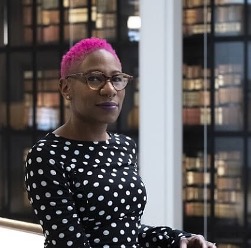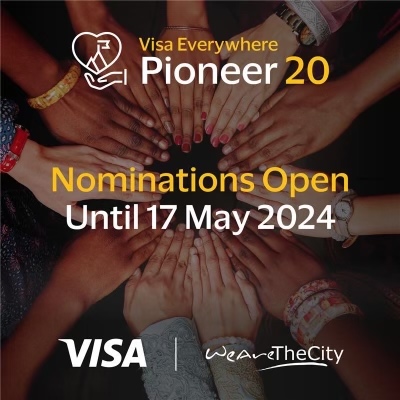
Adah Parris, Chair at Mental Health First Aid (MHFA) England
Many People of Colour and Black people have been, and still are, subjected to racial microaggressions and negative comments in the workplace.
Mental Health First Aid (MHFA) England research found that 6.5 million employees feel they cannot be their ‘real self’ at work and less than half (43%) think their colleagues know the ‘real’ them. Couple this with a recent YouGov survey, which found that half of Black Britons are as likely to have experienced racism in the workplace as on the street, and it is clear that organisations must take urgent action to ensure anti-racist principles and practices are at the heart of everything they do.
Responding to racist events and racial injustices
Events such as the murder of George Floyd can have a significant impact on the mental health of People of Colour and Black People, and so we must all be mindful when commenting on racism and racial injustice. Statements such ‘I don’t see colour’ or ‘I can’t believe this is still happening in 2020’ can be unhelpful, frustrating and upsetting for People of Colour and Black people. When White people claim that they can’t see race or say that they are surprised by racism and racial injustices, it becomes clear that they do not recognise their own privilege. Such claims do not help to progress an anti-racist agenda – by professing not to see race or saying that you’re shocked by racial injustices, you are simply ignoring racism when you should instead be taking action to champion race equity.
So, what can you say and do instead? White employees and employers should lead with empathy – ask questions when appropriate and listen non-judgementally. Recognise that traumatic events such as Black people being murdered at the hands of the police, and personal experiences of racism, can hugely impact mental health and wellbeing, which in turn can have an effect on work performance. Therefore, it is of the utmost importance to open discussions with People of Colour and Black colleagues about how you can actively provide support now and in the future. However, if someone does not want to engage in conversation, do not push or pry – it is important to respect their personal decision.
Furthermore, White employees and employers need to constantly educate themselves using resources about race, racism and racial justice, and the mental and emotional impact it can have on People of Colour and Black people. Too often, the onus is on People of Colour and Black colleagues to drive change in the workplace, but it is the responsibility of White people to understand systemic racism, prioritise anti-racism principles and proactively lead change, whilst all the time amplifying the voices of People of Colour and Black people.
Avoiding microaggressions
It is important to be cognisant of the fact that language is a powerful tool that can be used to include as well as exclude people. Racial microaggressions are all too common in the workplace, and many People of Colour and Black people experience poor mental health and a decline in wellbeing as a result of such behaviour.
Microaggressions are defined as “brief and commonplace daily verbal, behavioural, and environmental indignities, whether intentional or unintentional, that communicate hostile, derogatory, or negative slights and insults to marginalised individuals and groups.” An example of a microaggression is when a White employee tells a Person of Colour or Black person that they are ‘so articulate’ or ‘speak so well’. This holds the implication that People of Colour and Black people are typically thought of as being less articulate and/or less competent, due to their race and cultural background. It is crucial that White employees and employers understand that intent is entirely separate from impact – a ‘well-intentioned’ comment or throwaway ‘joke’ can not only have a negative impact on someone’s day, but it can have a long-term negative impact on their mental health and wellbeing.
Employers need to determine what is acceptable and what is unacceptable behaviour in regard to race. Examples of racial micro-aggressions need to be added to Diversity and Bullying and Harassment policies, continuous learning needs to be encouraged, and anti-racist training needs to be provided to staff in order to proactively tackle racism in the workplace. There should be a zero-tolerance approach to racist behaviour and employers must lead by example.
Employers should also create safe spaces for People of Colour and Black colleagues, so that they can talk about negative experiences without their psychological safety being compromised. If they do choose to share their experiences with their line manager or White colleagues, they should feel confident that immediate action will be taken to improve the workplace culture and environment.
Being actively anti-racist
MHFA England’s My Whole Self campaign is calling on all organisations to become actively anti-racist and has released new guidance with support from Business in the Community (BITC) and the Chartered Management Institute (CMI), on supporting People of Colour and Black people in the workplace. The guidance is a good starting point for White employers and employees to learn how to provide better support and be better allies, including in the way that they communicate with and speak to People of Colour and Black colleagues.
Sadly, many People of Colour and Black people feel they have to hide parts of their identity to fit in at the office. But when organisations empower employees to be their whole selves at work, it’s better for everyone’s mental wellbeing and better for business. It’s important to remember that the highest performing workplaces are supportive and inclusive, with healthier working cultures built on respect and collaboration. At an organisational level we must make a public commitment to being anti-racist and follow through with concrete actions for change.
To find out more, and to access free resources on how to become an actively anti racist organisation visit: https://mhfaengland.org/my-whole-self/.
About the author
 Adah is a polymath and enthusiastic curator of people, patterns and stories. She is a creative problem solver who empathetically subverts the status quo.
Adah is a polymath and enthusiastic curator of people, patterns and stories. She is a creative problem solver who empathetically subverts the status quo.
This year Adah has been longlisted as one of the Most Influential Women in UK Technology. In 2019, she was recognised as one of TED Talks Global Emerging Innovators. In 2018, she was recognised as one of the UK’s Top 100 Black and Minority Ethnic (BAME) Leaders in Technology.
Adah takes a philosophical and anthropological approach to technology, merging logic and creativity to design immersive storytelling, learning and development environments. Cultures in which her clients and audiences become critical thinkers, philosophers and immersive storytellers, problem-solvers. Innovators.
Adah has over 20 years of experience in transforming cultures to nurture decentralised humanity-centred innovation environments. She has worked with businesses and individuals in advertising, education, entertainment, entrepreneurship, marketing, media, and technology start-ups.
WeAreTheCity covers the latest female centric news stories from around the world, focusing on women in business, careers and current affairs. You can find all the latest gender news here.
Don’t forget, you can also follow us via our social media channels for the latest up-to-date gender news. Click to follow us on Twitter, Facebook, Instagram, and YouTube.








